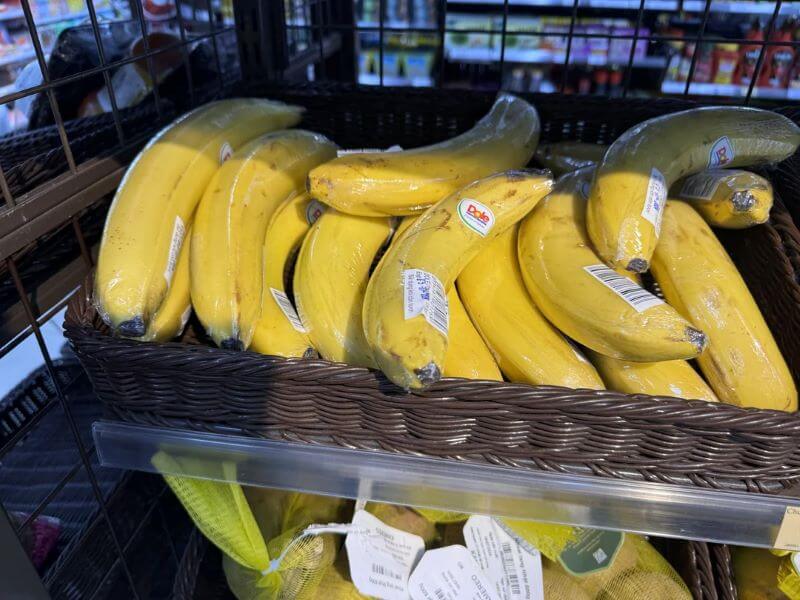A Reddit post highlighted a peculiar sight: individually plastic-wrapped bananas spotted at a store in Vietnam.
The image, shared with the r/mildlyinteresting community, shows a wicker basket filled with Dole bananas, each encased in a thin layer of plastic wrap.

What's happening?
Some Redditors are scratching their heads over this banana packaging practice. More consumers are reducing plastic use than ever, so this image is far from a sign of the times.
The photo quickly drew attention, and Reddit users expressed their dismay at what they saw as unnecessary waste.
One commenter pointed out the pointlessness of additional plastic wrapping on fruits: "Bananas are naturally wrapped. Most if not all fruits do not need to be wrapped. Fruits are still partially alive and they need air as their cells still do gas exchange. It is truly wasteful to wrap them like this."
Why is extra plastic wrapping concerning?
The sight of individually wrapped bananas worries those conscious of our planet's health. As the commenter above wrote, bananas already come in natural, biodegradable packaging: their peels. Adding an extra layer of plastic contributes to single-use plastic waste.
Plastic pollution threatens our ecosystems, particularly our oceans. When plastic breaks down over time, it releases toxic chemicals and microplastics that seep into our food chain. Moreover, the production of plastic packaging requires energy and resources, contributing to dirty gas pollution that warms our planet.
Is Dole doing anything about this?
While this particular overpackaging instance is concerning, it's worth noting that Dole has made efforts to improve its sustainability practices. The company has pledged to eliminate "fossil-based plastic packaging" by 2025 and achieve "net-carbon operations" by 2030.
It's unclear whether this specific example is a widespread practice or an isolated incident. Without context, it's difficult to determine whether this represents Dole's standard packaging in certain markets or a one-off occurrence specific to a particular Vietnamese produce retailer.
What's being done about plastic waste more broadly?
Thankfully, many companies are taking steps to reduce plastic waste.
Some grocery stores now offer plastic-free produce sections, encouraging shoppers to use reusable produce bags or skip bags altogether, especially for naturally protected fruits like bananas.
Innovative packaging solutions are also rising in popularity. Some companies are experimenting with edible coatings that extend produce shelf life without plastic, and others are developing compostable packaging materials made from plants.
As consumers, we can use our wallets to drive change. Opting for unpackaged produce sends a clear message to retailers and producers. For example, many grocery stores now offer loose bananas due to consumer purchasing trends, allowing customers to buy what they need without excess packaging.
By changing our shopping habits, we can reduce waste and save money. Every action, no matter how small, contributes to a larger movement toward a more sustainable future, proving that when it comes to protecting our planet, we can have our banana and eat it, too — without the plastic wrap.
Join our free newsletter for easy tips to save more and waste less, and don't miss this cool list of easy ways to help yourself while helping the planet.









